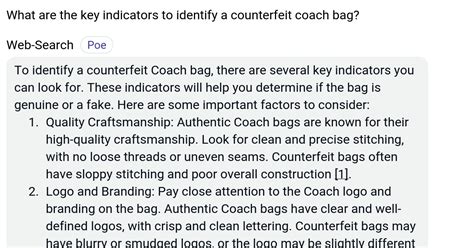How to Identify Counterfeit Health Coaching
The health and wellness industry is booming, with more and more people seeking guidance and support to achieve their health goals. This has led to a surge in demand for health coaches, professionals who provide personalized support and accountability to help individuals make positive changes in their lives. While genuine health coaches can be invaluable assets in achieving well-being, it’s crucial to be aware of the growing problem of counterfeit health coaches.
Counterfeit health coaches often lack the necessary qualifications, experience, and ethical standards, posing a significant risk to individuals seeking their services. This article will guide you through key red flags to help you identify counterfeit health coaches and make informed decisions when selecting a health coach.
What are the red flags of a counterfeit health coach?
Identifying a counterfeit health coach can be challenging, as they often present themselves as legitimate professionals. However, there are several red flags that should raise suspicion and prompt you to do further research.
One of the most significant red flags is a lack of proper credentials. Legitimate health coaches often hold recognized certifications from reputable organizations. These certifications signify that they have undergone rigorous training and met specific standards. Always ask for proof of credentials and verify their legitimacy.

Be cautious if a coach claims to have a miracle cure or promises quick, unrealistic results. Real health coaching focuses on sustainable lifestyle changes, not quick fixes. It’s important to understand that achieving lasting health transformation takes time, effort, and commitment.
Another red flag is a lack of transparency regarding pricing and services. A reputable coach will clearly outline their fees, payment options, and the scope of services they offer. Be wary of coaches who are vague about their pricing or try to pressure you into purchasing expensive packages without providing a clear explanation.
Beware of coaches who focus solely on selling supplements or promoting specific products. While some coaches may recommend supplements or products as part of a holistic approach, their primary focus should be on empowering you to make informed choices and take ownership of your health.
A genuine health coach will prioritize building a strong relationship with you, based on trust, respect, and understanding. They will be open to your questions and concerns, and they will not pressure you into making decisions you’re not comfortable with.
What are the qualifications of a legitimate health coach?
A legitimate health coach typically holds recognized certifications from reputable organizations. These certifications signify that they have undergone rigorous training and met specific standards.
Some common certifications include:
- National Board for Health & Wellness Coaching (NBHWC): This is a reputable organization that offers certification programs for health and wellness coaches. Their certification process involves extensive training, rigorous examination, and ongoing continuing education requirements.
- American Council on Exercise (ACE): ACE offers a comprehensive certification program for health coaches that covers topics such as nutrition, exercise, behavior change, and client communication.
- International Coaching Federation (ICF): While ICF primarily focuses on coaching in general, they also offer certification programs for health coaches. Their certification process emphasizes ethical standards, coaching competencies, and ongoing professional development.
How can I protect myself from counterfeit health coaches?
There are several steps you can take to protect yourself from counterfeit health coaches.
- Do your research: Before hiring a health coach, research their qualifications, experience, and credentials. Check their website, social media profiles, and online reviews. Look for testimonials from previous clients and seek referrals from trusted sources.
- Ask for credentials: Don’t hesitate to ask for proof of credentials. A legitimate health coach will be happy to provide you with their certifications and licenses. Verify their legitimacy by contacting the issuing organizations.
- Be wary of unrealistic promises: Beware of coaches who make promises of quick and easy weight loss, miraculous cures, or unrealistic results. Health coaching should focus on sustainable lifestyle changes that promote long-term well-being.
- Trust your instincts: If something feels off or you’re not comfortable with a coach’s approach, trust your gut instinct. There are many other qualified and ethical health coaches available.
How do I report a counterfeit health coach?
If you suspect that a health coach is operating fraudulently or engaging in unethical practices, reporting them can help protect others from their actions. You can report them to the following authorities:
- Your state’s licensing board: If the coach claims to have a license, contact your state’s licensing board to verify its validity and report any suspected misconduct.
- The Better Business Bureau (BBB): The BBB allows consumers to file complaints against businesses and organizations, including health coaches. Your complaint will be investigated and may result in a warning or sanctions against the coach.
- The Federal Trade Commission (FTC): The FTC enforces consumer protection laws and may take action against health coaches who engage in deceptive or unfair practices.
What are the consequences of working with a counterfeit health coach?
Working with a counterfeit health coach can have several negative consequences, including:
- Ineffective results: Counterfeit coaches may lack the necessary knowledge and expertise to provide effective health coaching. This can result in wasted time, money, and effort with no tangible improvements in your health.
- Health risks: Counterfeit coaches may recommend unsafe or inappropriate interventions, potentially putting your health at risk. They may also lack the ability to recognize and address underlying health conditions.
- Financial loss: Counterfeit coaches may charge exorbitant fees or pressure you into purchasing unnecessary products and services. This can lead to significant financial losses, especially if you’re already struggling financially.
- Emotional distress: Working with a counterfeit coach who is not qualified or ethical can be emotionally draining and frustrating. This can hinder your progress and undermine your motivation to make healthy changes.
How can I avoid counterfeit health coaches?
There are several steps you can take to avoid counterfeit health coaches:
- Seek referrals: Ask your doctor, friends, family, or other healthcare professionals for recommendations for reputable health coaches.
- Check online reviews: Read reviews from previous clients on websites like Google, Yelp, and Healthgrades. Look for consistent positive feedback and avoid coaches with a high number of negative reviews.
- Ask about their qualifications: Don’t be afraid to ask a potential coach about their credentials, experience, and training. A legitimate coach will be transparent and willing to share their credentials with you.
- Trust your instincts: If you feel uncomfortable or uneasy with a coach, trust your gut instinct. There are many other qualified and ethical health coaches available.

What are the benefits of working with a legitimate health coach?
Working with a legitimate health coach can offer numerous benefits, including:
- Personalized support and guidance: A legitimate health coach will work with you to develop a personalized plan that meets your specific needs and goals.
- Increased accountability: Having a health coach to check in with regularly can increase your accountability and motivation to stick to your goals.
- Improved health outcomes: Studies have shown that working with a health coach can lead to significant improvements in weight loss, blood pressure, cholesterol levels, and overall health.
- Enhanced self-efficacy: A good health coach will empower you to make informed decisions about your health and take ownership of your well-being.
What are the signs of a good health coach?
A good health coach will demonstrate the following characteristics:
- Genuine interest in your well-being: They will take the time to understand your individual needs and goals and will work with you to develop a plan that is tailored to your specific situation.
- Strong communication skills: They will be able to effectively communicate with you, providing clear and concise information in a way that is easy to understand.
- Ethical and professional: They will adhere to ethical standards and maintain professional boundaries.
- Supportive and encouraging: They will provide encouragement and motivation without being judgmental or critical. They will be there to celebrate your successes and support you through setbacks.
- Respectful of your boundaries: They will respect your decisions and boundaries, and they will not pressure you into doing anything you’re not comfortable with.
Table summarizing the information
| Topic | Key Points |
|---|---|
| Red flags of a counterfeit health coach | Lack of credentials, unrealistic promises, lack of transparency, focus on selling products, pressure tactics. |
| Qualifications of a legitimate health coach | Recognized certifications from reputable organizations such as NBHWC, ACE, ICF. |
| How to protect yourself from counterfeit health coaches | Research their qualifications, ask for credentials, be wary of unrealistic promises, trust your instincts. |
| Consequences of working with a counterfeit health coach | Ineffective results, health risks, financial loss, emotional distress. |
| Benefits of working with a legitimate health coach | Personalized support, increased accountability, improved health outcomes, enhanced self-efficacy. |
| Signs of a good health coach | Genuine interest in your well-being, strong communication skills, ethical and professional, supportive and encouraging, respectful of your boundaries. |
FAQ
What are the different types of health coaching?
There are many different types of health coaching, including:
- Weight loss coaching: Helps individuals achieve sustainable weight loss through lifestyle changes.
- Nutrition coaching: Provides guidance on healthy eating habits and meal planning.
- Fitness coaching: Helps individuals develop a personalized exercise plan and achieve their fitness goals.
- Stress management coaching: Teaches coping mechanisms for stress and anxiety.
- Lifestyle coaching: Addresses a range of health and wellness factors, including sleep, hydration, and stress management.
- Chronic disease management coaching: Supports individuals living with chronic conditions, such as diabetes or heart disease.
How can I find a reputable health coach?
Here are some tips for finding a reputable health coach:
- Ask for referrals: Ask your doctor, friends, family, or other healthcare professionals for recommendations.
- Check online reviews: Read reviews from previous clients on websites like Google, Yelp, and Healthgrades.
- Look for certifications: Check if the coach holds recognized certifications from reputable organizations.
- Contact professional organizations: Organizations like the NBHWC and ACE can provide a directory of certified health coaches in your area.
What should I ask a potential health coach?
Here are some questions to ask a potential health coach:
- What are your credentials and experience?
- What types of coaching services do you offer?
- What is your coaching approach?
- What are your fees and payment options?
- Do you have any testimonials or reviews from previous clients?
- What is your cancellation policy?
- What are your ethical guidelines?
How much does health coaching cost?
The cost of health coaching can vary depending on factors such as the coach’s experience, qualifications, location, and the type of services offered. Some coaches may offer a free consultation or introductory session. It’s important to get a clear understanding of the coach’s fees and payment options before committing to their services.
Is health coaching covered by insurance?
Health coaching is not typically covered by insurance, but there are exceptions. Some employers may offer health coaching as part of their employee benefits package. You can also check with your insurance provider to see if they offer any coverage for health coaching services.
What is the difference between health coaching and health counseling?
Health coaching and health counseling are both related fields, but they have some key differences. Health coaches focus on helping clients achieve their health and wellness goals through lifestyle changes and behavior modification. Health counselors, on the other hand, provide more in-depth support and therapy for individuals facing mental health challenges or emotional distress.
What are the ethical guidelines for health coaches?
Reputable health coaching organizations, such as the NBHWC and ICF, have established ethical guidelines for their members. These guidelines emphasize:
- Confidentiality: Coaches are obligated to keep client information confidential.
- Integrity: Coaches must be honest and transparent in their dealings with clients.
- Professionalism: Coaches should maintain professional boundaries and conduct themselves in a manner that upholds the reputation of the profession.
- Competence: Coaches must have the necessary knowledge, skills, and experience to provide effective coaching services.
